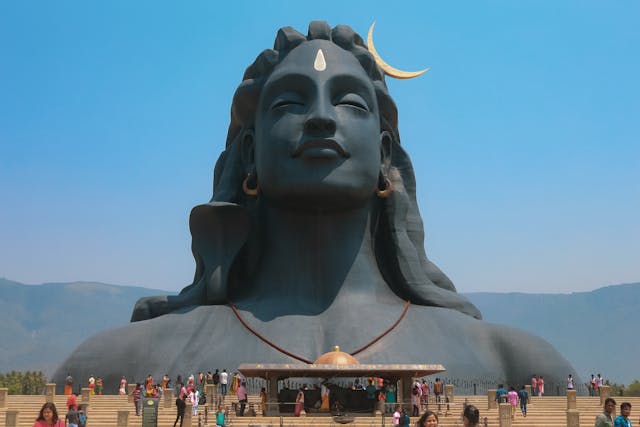In 2024, the Hindu month of Sawan (or Shravan) typically falls in July. This month is considered highly auspicious and is dedicated to Lord Shiva. Devotees celebrate Sawan with various rituals, including fasting, prayers, and special temple visits. Key events like Sawan Mondays (Somvar Vrats) are observed with particular devotion. The spiritual significance and traditional practices during Sawan make it a time of deep religious observance and cultural festivities.
Here are some more interesting facts about Sawan (or Shravan) .

1. **Sawan Somvar Vrats**: Mondays in Sawan are particularly significant. Devotees fast and offer special prayers to Lord Shiva, believing that these rituals will bring them blessings and fulfill their wishes.
2. **Kanwar Yatra**: During Sawan, thousands of devotees, known as Kanwariyas, undertake a pilgrimage to fetch holy water from the Ganges River. They carry this water in pots back to their local Shiva temples.
more details about kanwar(kawad) yatra.
3. **Mythological Significance**: According to Hindu mythology, during the churning of the ocean (Samudra Manthan), poison emerged from the ocean. Lord Shiva consumed this poison to save the world, and the act turned his throat blue, earning him the name Neelkanth. Sawan is believed to be the month when this event took place.
4. **Festivals**: Several festivals fall during Sawan, including Raksha Bandhan, Teej, and Nag Panchami. These festivals add to the cultural richness of the month.
5. **Rainy Season**: Sawan coincides with the monsoon season in India, symbolizing fertility and renewal. The rains are seen as a blessing, replenishing the earth and providing relief from the summer heat.
6. **Cultural Practices**: In many regions, people decorate Shiva temples with flowers, especially white flowers like jasmine and bel leaves, which are considered dear to Lord Shiva. Devotional songs (bhajans) and dances are also performed.
7. **Dietary Practices**: Many people follow a vegetarian diet during Sawan and avoid foods like onions, garlic, and non-vegetarian items, focusing on sattvic (pure) foods.
8. **Symbol of Devotion**: Sawan is a time for increased spiritual activities, including reading scriptures like Shiva Purana and chanting mantras like “Om Namah Shivaya.” Devotees believe that this enhances their spiritual growth and brings them closer to Lord Shiva.
Certainly! Here are some additional intriguing aspects of Sawan:

9. **Sawan and Ayurveda**: According to Ayurveda, the monsoon season can disturb the body’s doshas (vata, pitta, kapha). The practices during Sawan, like specific diets and fasting, help balance these doshas and maintain overall health.
10. **Rituals and Offerings**: Devotees offer milk, water, bilva leaves, and other sacred items to Shiva Lingams in temples. Each of these offerings has symbolic significance: milk is for purity, water for life, and bilva leaves are believed to cool Shiva’s temper.
11. **Regional Variations**: In different parts of India, Sawan is celebrated with unique regional customs. For instance, in Maharashtra, it’s common to see beautiful rangolis (decorative patterns) in homes and temples, while in the northern states, the Kanwar Yatra is a major highlight.

Kalpana Chawla: The Star Who Touched the Sky
January 26, 2025
2 Comments
Kalpana Chawla, an inspiring name etched in the annals of space exploration, was a trailblazer who left an indelible mark on history. Her journey from

Indian Coast Guard Day: Celebrating Maritime Vigilance
January 15, 2025
No Comments
Indian Coast Guard Day: Celebrating Maritime Vigilance Indian Coast Guard Day is celebrated annually on February 1 to honor the establishment of the Indian Coast
